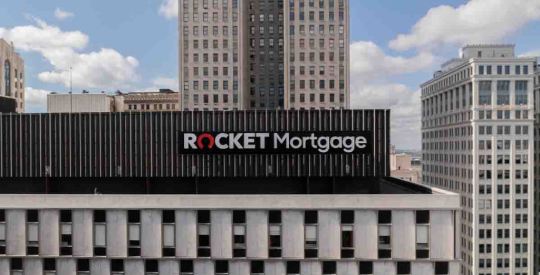HousingWire recently published an "appraiser shortage" blog screed that was tone-deaf to the problems facing appraisers. To their credit, Jacob Gaffney, the editor-in-chief, reached out to me for a rebuttal after reading all the negative appraiser feedback in the comments section. Rather than address specific failings of this piece, I opted to focus on current appraiser reality.
To start, the residential appraisal industry has a perception problem.
We haven't been very good at speaking up for ourselves, so other industries stepped in long ago and did it for us. I've characterized us as "lone wolves" who don't have anyone representing us. Sure we have some trade groups, but they are no match for the lobbying juggernauts behind real estate agents, appraisal management companies, GSEs and the mortgage banking industry.
As a result, no one seems to understand our role in the mortgage-lending process. We are seen in a bi-modal way: "deal killers" or "deal enablers," not unbiased valuation experts providing banks with a neutral benchmark to make an informed lending decision on the collateral.
Appraisers have long been beaten down by all parties involved in the home buying transaction.
Everyone is smarter than us because they already know the "number" in a mortgage transaction. The mortgage broker, bank lender, buyer, seller, buyer's attorney, seller's attorney, appraisal management company or AMC and title company all know that number well. We, appraisers, arrive late to the party in the mortgage process and can spoil everything if we don't agree with "the number." And us lone wolves are often subjected to direct and indirect financial pressures when we don't agree to "the number."
Since the financial crisis, our role has been spun to the negative by other industries sensing a large-scale payday. The story shifted from a systemic mortgage system breakdown to one that blamed us lone wolves as "bad actors" who colluded with mortgage brokers during the boom.
To prevent history from repeating itself, AMCs – those third party institutional intermediaries – pushed a self-dealing storyline that promoted the separation of appraisers from interacting directly with banks to prevent collusion and improve quality and efficiency.
To do that, AMCs take half of the market rate appraisal fee to manage us. This administrative fee is earned by confirming we had a license, forcing us to interact daily with 19-year olds — chewing gum checking on the status of their appraisal — subjecting us to expanding scope creep to validate their existence and run analytics on our appraisal opinions to keep us accurate. This relationship is done all in the name of compliance even though there is no regulation requiring banks to use AMCs. And remember that litigation of cases involving AMCs such as eAppraiseIT showed collusion on a much larger scale.
AMCs pushed the idea that a 50% fee reduction net to the appraiser would not have any impact on quality. Of course, if that were true, wages across all industries in the U.S. would be halved almost immediately. And best of all, the 50% pay cut to appraisers would be hidden from the consumer to reduce their "confusion" as advocated by REVAA, the AMC trade group. The AMC industry doesn't want the public to know that valuation expertise in the mortgage lending process is given the same weight as administrative bureaucracy. The 50% appraiser pay cut fee effectively helped banks comply with post-financial crisis regulations at no cost, placing all their savings on the backs of the lone wolves who can't afford public relations firms.
But over time, something interesting happened. AMCs started to run out of appraisers willing to work for 50% less than the market rate. Good appraisers responded to the pay cut by moving on to other clients who would pay them a fair fee for their valuation expertise. This problem became greatly exaggerated as mortgage rates fell and appraisal refinance assignments surged. Now the "appraiser shortage" narrative became a full-fledged crisis to the AMC industry. AMCs pressed even harder with their "appraiser shortage" narrative that never existed as described. They portrayed us lone wolves as greedy and self-serving, just for shifting to clients who pay a fair wage.
Isn't this America?
Isn't it ironic that appraisers, who are in the business of valuing assets by measuring the forces of supply and demand, are not allowed to participate in the free market system that is based on supply and demand?
Yes, there are spot shortages of appraisers on occasion and frequently in rural areas. But those shortages are fee-driven as AMCs try hard to apply fee uniformity across the nation. I'm going to go out on a limb and contend that the cost of an appraiser operating in Montana is different than in Manhattan.
Over the past year, a growing swath of appraisers decidedly value their worth now and are speaking out.
We can see this with the membership outrage towards the Appraisal Institute for their long neglect of residential members among other issues. We can also see the appraiser push back by the inability of AMCs to find enough appraisers willing to work for half the market rate.
We need more transparency in the mortgage lending process, not less. In a free market system, the appraisal fee should be market-based, and the AMC fee should be applied separately so that the consumer can see and understand to whom they are paying what.
We can only hope that the housing market media that covers the appraisal industry will stop relying on optics of press releases and take some time to talk to us lone wolves for both sides of the story.
The move by HousingWire is a good start.
Lone wolves aren't in short supply, and we don't always bite.





